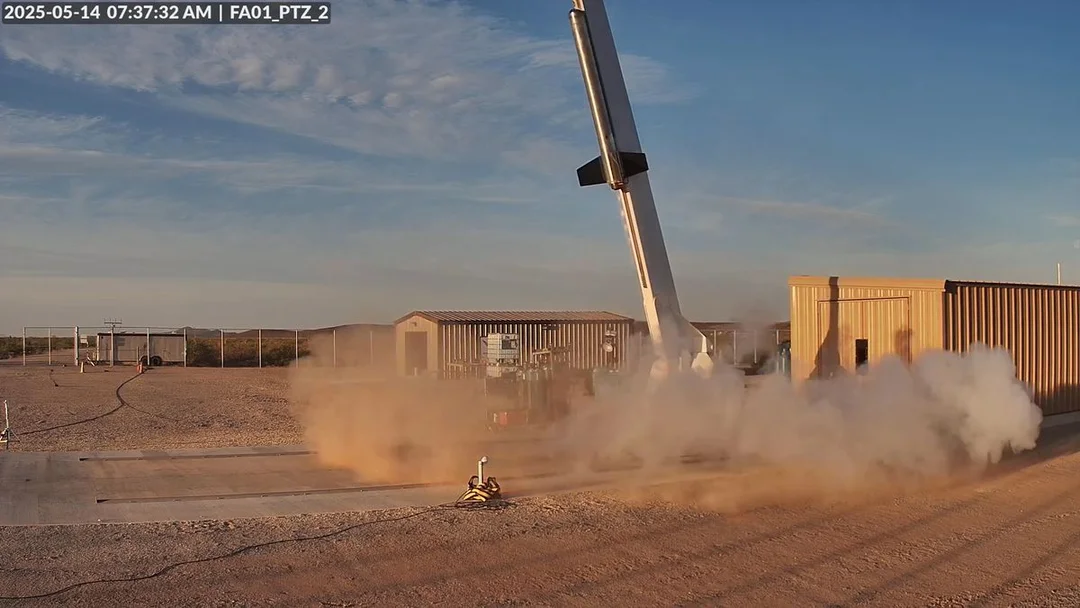
Venus Aerospace’s Revolutionary Rocket Engine Takes Flight: A Leap Towards Hypersonic Travel
In a groundbreaking moment for aerospace engineering, Venus Aerospace, a Houston-based startup, has achieved a major milestone: the first successful test flight of a rotating detonation rocket engine (RDRE) in the United States. This event, which took place on Wednesday, May 14th, at Spaceport America in New Mexico, signifies a pivotal step toward making high-speed flight more accessible and affordable.

According to a statement from Venus Aerospace CEO Sassie Duggleby, this test represents the culmination of five years of dedicated work. The successful flight validates the company's RDRE design, paving the way for runway-based high-speed flight. "We've proven that this technology works – not just in simulations or the lab, but in the air," Duggleby emphasized.
The Venus RDRE boasts a compact, high-efficiency design aimed at powering aircraft up to Mach 6, starting from conventional runways. RDREs offer greater thrust in smaller packages compared to traditional rocket engines, utilizing a continuous detonation wave within a ring-shaped chamber to achieve higher pressure, efficiency, and increased thrust with less fuel.
CTO Andrew Duggleby added, "This milestone proves our engine works outside the lab, under real flight conditions. We've built an engine that not only runs, but runs reliably and efficiently – and that's what makes it scalable."
This achievement arrives amid growing concerns about the U.S. falling behind in the race for hypersonic technology. With countries like China and Russia actively developing hypersonic weapons, the Pentagon is eager to regain its competitive edge. Start-ups like Venus Aerospace, Castelion, and Hermeus are now at the forefront, pushing the boundaries of aerospace engineering to meet the Defense Department's demand for faster aircraft and missiles.
The RDRE being developed by Venus works in tandem with their VDR2 air-breathing detonation ramjet, a combination designed to enable sustained hypersonic flight without needing a booster.
The startup indicates that the engine it has developed will allow for hypersonic weapons that are 10 times cheaper than those currently available. With this successful test in hand, Venus plans full-scale propulsion tests of their integrated system, moving towards qualifying the design of their future Stargazer M4, a reusable passenger aircraft capable of reaching Mach 4.
The successful test marks only the second documented instance of a rotating detonation rocket engine launching under its own power; engineers believe this sort of engine could someday make it cheaper to send satellites into space. A similar test took place by researches at Poland’s Lukasiewicz Institute of Aviation in 2021. Venus’ rocket, however, flew far higher and burning its engine for a significantly longer time.
The team at Venus is hoping that by proving this engine works beyond laboratory conditions, they will bring the world closer to the future of hypersonic travel. With the potential to send personnel across the globe in under tow hours, it appears that the sky is truly no limit for these modern space technologies.
Venus Aerospace's RDRE flight test marks a significant leap forward in propulsion technology, with potential applications ranging from military hypersonic missiles to commercial air travel at unprecedented speeds. This achievement underscores the vital role of innovation and the growing importance of private companies in shaping the future of aerospace. What implications do you think this technology will ultimately have for global travel and military strategy? Share your thoughts in the comments below.